One Conference, Seven Keynote Speakers, Countless Teachings
Our conference is organized around seven keynote speakers who are each leaders in the world of Buddhism as it relates to social-spiritual liberation. Our speakers come from around the globe, representing an extraordinary berth of identities, traditions, trainings, professions, and perspectives.
We are humbled to offer one of the most radically diverse keynote speaker line-ups of any Buddhism conference globally.
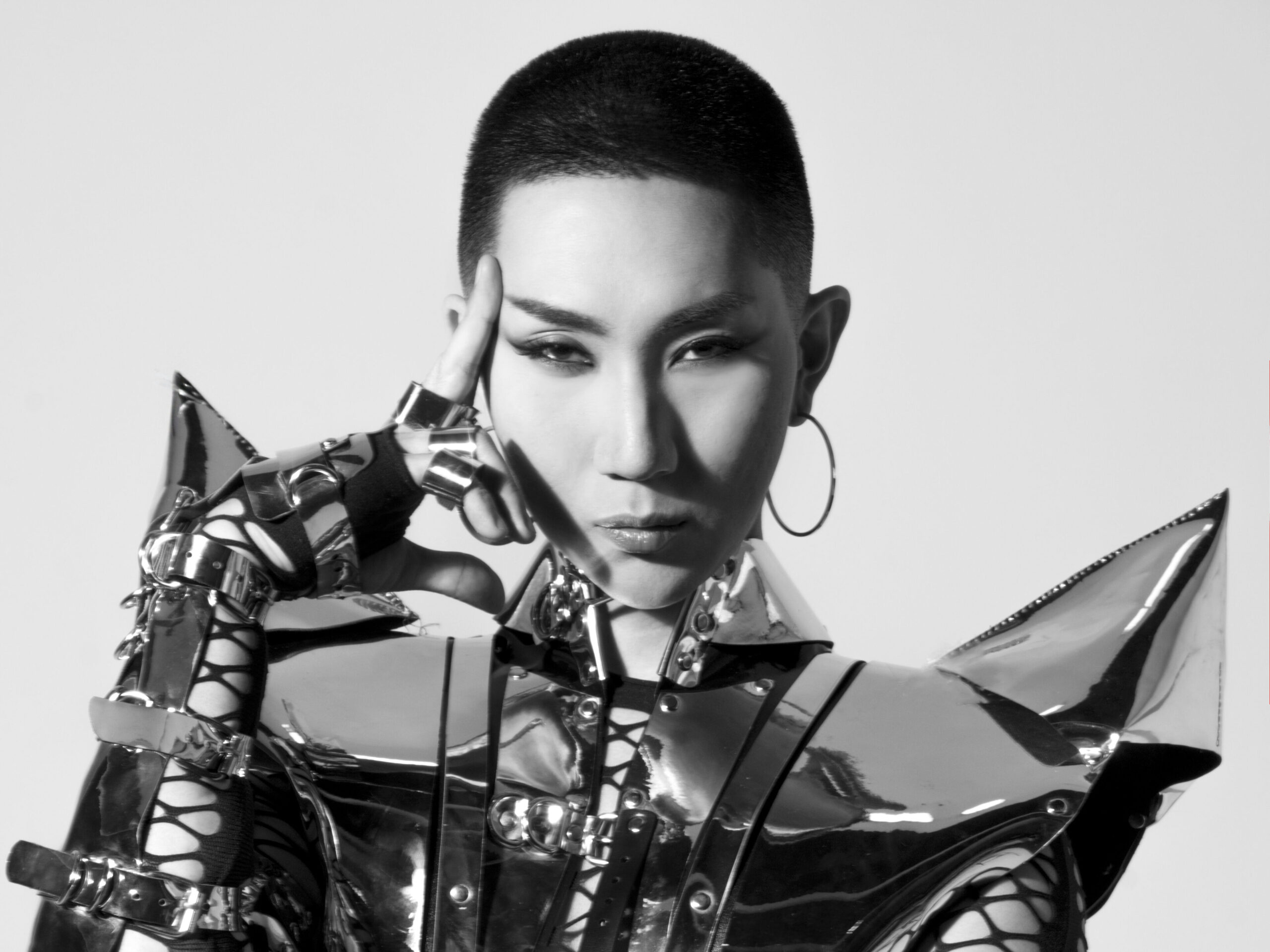
Headliner – Keynote 1
Ven. Kodo Nishimura
Jodo Shu (Pure Land) monk, global LGBTQ+ Buddhist activist/speaker/leader, and internationally celebrated make-up and visual artist.
Kodo Nishimura (he/him)
Artist / Buddhist Monk
Kodo Nishimura was born and raised in a temple in Tokyo in 1989. After high school, he graduated from the Parsons School of Design in New York and worked as a makeup artist behind the scenes of Miss Universe and NY Fashion Week. Later he joined the monk training and was certified as a Buddhist monk by the Pure Land school in 2015. He rose to fame following his appearance on “Queer Eye: We’re in Japan” advocating for LGBTQ+ rights. His memoir “This Monk Wears Heels: Be Who You Are “was released in eight languages, and TIME magazine recognized his significance by selecting him as a Next Generation Leader in 2021.
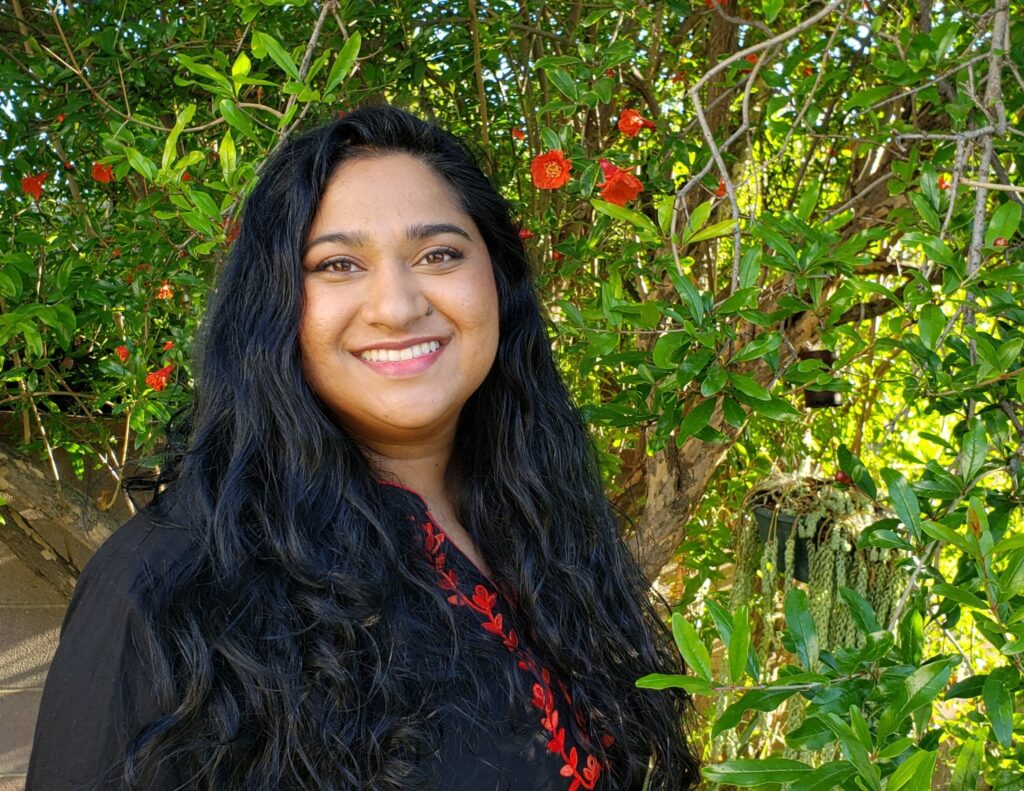
Keynote 2
Dr. Mihiri Tillakaratne, PhD
Leader in scholarship-journalism-activism in Asian American Buddhism, Associate Editor at Lion’s Roar, PhD from UC Berkeley in Buddhism and race/gender/colonial studies.
Mihiri Tillakaratne (she/her) is an Associate Editor at Lion’s Roar, where she focuses on Asian American Buddhist issues and is launching the new digital publication Bodhi Leaves: The Asian American Buddhist Monthly in early 2024. She has a PhD in Ethnic Studies and Gender, Women, and Sexuality from UC Berkeley, where she explored embodied memory in Sri Lankan America. At UCLA, she examined how Sri Lankan American temples’ approaches to younger generations affected identity formation for her M.A. thesis, and directed the documentary I Take Refuge. As a Harvard undergrad, she learned Pali and studied Sinhala Buddhist nationalism in post-independence Sri Lanka.

Keynote 3
Dr. Santosh Ishwardas Raut, PhD AKA Maitriveer Nagarjuna
Professor of Buddhist Philosophy and Aesthetics, acclaimed Ambedkarite Buddhist clergyperson/leader/activist, and Fellow at Harvard Divinity School.
Santosh Ishwardas Raut is an Assistant Professor, in the Department of Aesthetics and Philosophy at The English and Foreign Languages University, Hyderabad, India. For the past 11 years Raut has also served as an Honorary Director, Nagarjuna Training Institute, Nagaloka, Nagpur. Raut was awarded awarded Urgyen Sangharakshita Library Research Fellowship, Herefordshire, the UK in 2013-15 for writing a doctoral thesis on Kant, Schopenhauer, and Buddhist Aesthetics Philosophy. Finally, Raut holds a Ph.D. from India’s premier academic institution, Jawaharlal Nehru University, New Delhi.
Raut writes about himself, “A long term interest in the area of Buddhism led me to make a humble attempt to erect a Buddhist Aesthetic Theory. In the modern western tradition of theorizing about aesthetics (beauty) and its relationship to moral and to spiritual value goes back to ancient Greeks. But we do not get any correspondent theory to this in early ancient Buddhist traditions (though in Japan we do get some aesthetics theory). We can say that Buddha did not have the nature of aesthetics as a theory, but we do get some similar aspects and links that give strong germs about aesthetics in some strands of Buddhism and some of the direct teachings of the Buddha. That is where my research intervenes.
The passion of Buddhist Aesthetic Philosophy qualified me to be in a position given by the Government of Telangana State, India as one of the Experts on a Committee in the creation of world’s largest Buddhist Theme Park called Buddhavanam (The Garden of the Buddha). Buddhavanam – is an artistic Buddhist Project in an expansive 279 acres of land on the northern bank of the river Krishna at Nagarjuna Sagar on hills called Sri-Parvatarama. The park site situated at the Nagarjuna Sagar on the river Krishna was known as Nagarjuna Konda.( Nagarjuna’s Hill). Nagarjuna Konda was named after the famous Buddhist scholar and Madhyamika philosopher Acharaya Nagarjuna. Nagarjunakonda was a centre of Mahayana Buddhism, where many of the Buddhist sects had their monasteries, shrines and Stupas built to propagate the Dhamma.ma
The ancient roots of Buddhism were revived in modern India by the statesman Dr. B. R. Ambedkar, who also scripted the Constitution of India. Ambedkar’s philosophy inspired me to write on the issues of Caste, Democracy, and Buddhism. Ambedkar’s idea was that – on the basis of the Dhamma – the teachings of the Buddha, a new society based on Liberty, Equality, Justice and Dignity can be created. The thought led me to venture as far as in a remote village of Hungary at Dr. Ámbédkar Iskola at Śajókaza and Miskolc to sit with them and teach the thought of Dr. B. R. Ambedkar and support teaching among Roma people in Hungary. They are equally inspired by Ambedkar and Buddhism to live a life of dignity.
My deep interest in theory and practicing Dhamma, I came to realize that the Buddhist program and path given by Dr. B. R. Ambedkar is the way of liberation for caste-oppressed and also for privileged classes in India. I trade the path on for a long time. In course of my journey, this quest led me to get ordained in the International Buddhist Community in 2006 called Triratna Buddhist Sangha – acquired another name Dhammachari Maitriveer Nagarjuna. To teach and lead Buddhist meditation, Suttas, and Dhamma Practices, I lead retreats in the rainy western hills of India, in the mountains of northern and southern India, and at the feet of the Buddha – Bodhgaya. This made me capable of setting up Buddhist Training Institution and lead a Buddhist movement in India. I travelled across Asia (Taiwan, China, Japan, Thailand) and the West (the UK, The Netherlands, Germany, Hungary, France) to teach in the area of Buddhist Philosophy and the thought and vision of Dr. B. R. Ambedkar.
The entwining my deep experiences in the mission of Dr. Ambedkar, Buddhist movement in India and Engaged Buddhists across the globe with academic training, I am looking forward to bring in a refined and contemplative academic research. I would like to theorise the universe of discourse, starting from oppression to liberation, infusing the variegated insights of my experiences and life’s learning into creating a deeply researched book.”
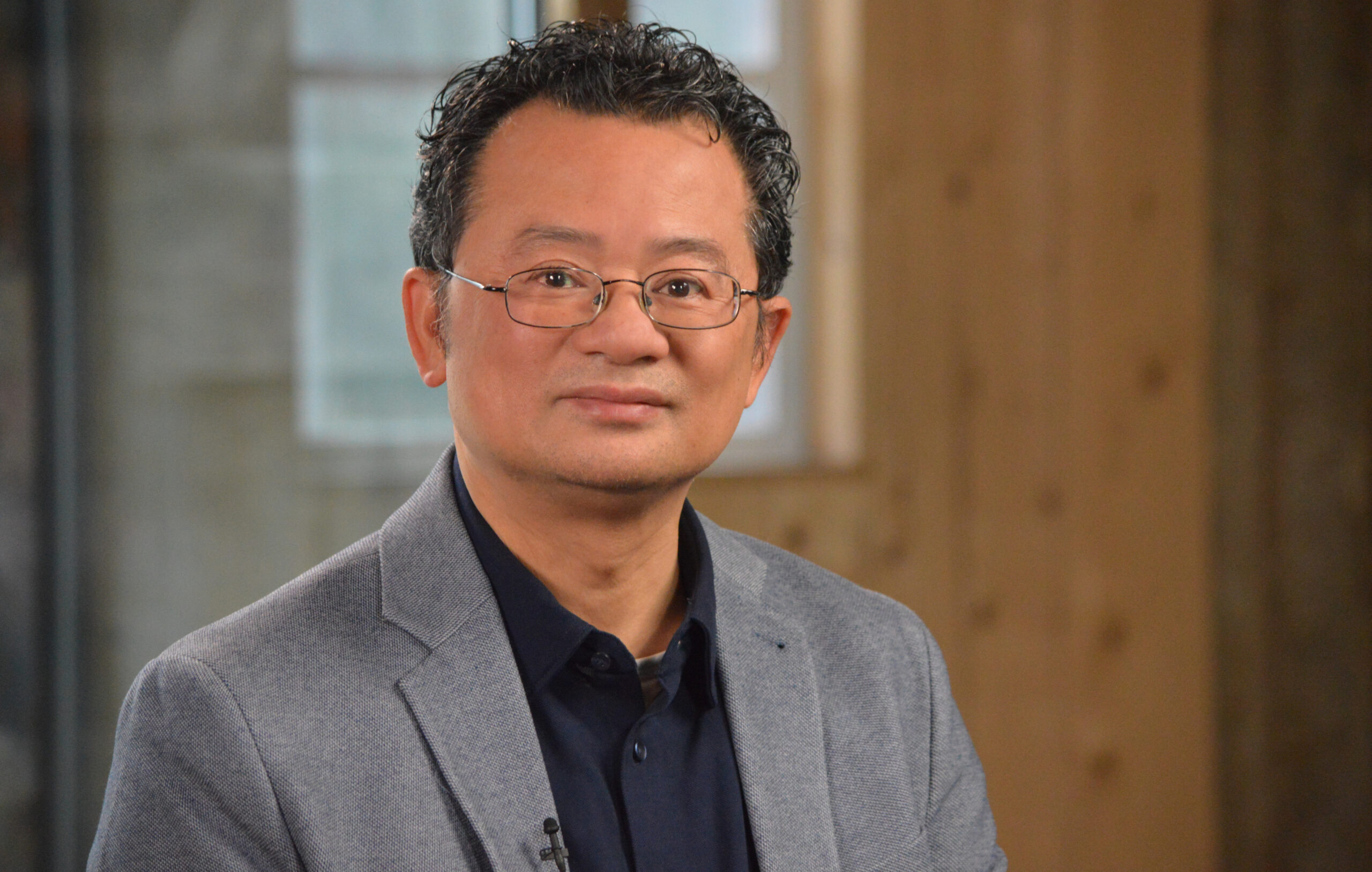
Keynote 4
Cuong Lu
Thiền Buddhist teacher, scholar and writer. 19th monastic discipline of Thich Nhat Hanh. Founder of No Word Zen, an order of “invisible” monks and nuns.
Cuong Lu, Buddhist teacher, scholar, and writer, was born in Vietnam in 1968. He majored in East Asian studies at the University of Leiden, and in 1993 was ordained as the 19th monastic disciple of Thich Nhat Hanh. In 2000, he was recognized as a teacher in Zen Buddhism.
In 2011, along with five colleagues, he attended a ceremony establishing Buddhist spiritual care at the Ministry of Justice and served as a chaplain in Holland’s penitentiary system for six years. In the same year, Cuong founded Mind Only Institute, where he teaches Buddhist philosophy and psychology.
In 2022, he founded No Word Zen, an order of “invisible” monks and nuns. The monastics in this order are everywhere, serving society and the planet without being “caught” by monastic forms or robes.
Cuong Lu is the author of The Buddha in Jail: Restoring Lives, Finding Hope and Freedom; Wait: A Love Letter to Those in Despair; and Happiness is Overrated: Simple Lessons on Finding Meaning in Each Moment.

Keynote 5
Duncan Ryuken Williams
Professor of East Asian Studies at USC, Soto Zen Priest, foremost scholar on history of and activist leader within Japanese & Asian/PI American Buddhisms.
Duncan Ryuken Williams was born in Japan to a British father and a Japanese mother and was ordained in 1992 as a Soto Zen Buddhist priest at Kotakuji Temple in Matsumoto, Japan. He is currently Professor of Religion, American Studies & Ethnicity, and East Asian Languages and Culture at USC and Director of the Ito Center for Japanese Religions and Culture. He is the author of The Other Side of Zen and American Sutra as well as seven edited volumes, including Buddhism and Ecology, American Buddhism, and Hapa Japan. He is affiliated as a priest with Zenshuji Soto Mission in Los Angeles’ Little Tokyo; on the Boards of Tricycle, APARRI (Asian Pacific American Religious Research Initiative), and the Irei Project; and a founding member of the Asian American Buddhist “May We Gather” collective.
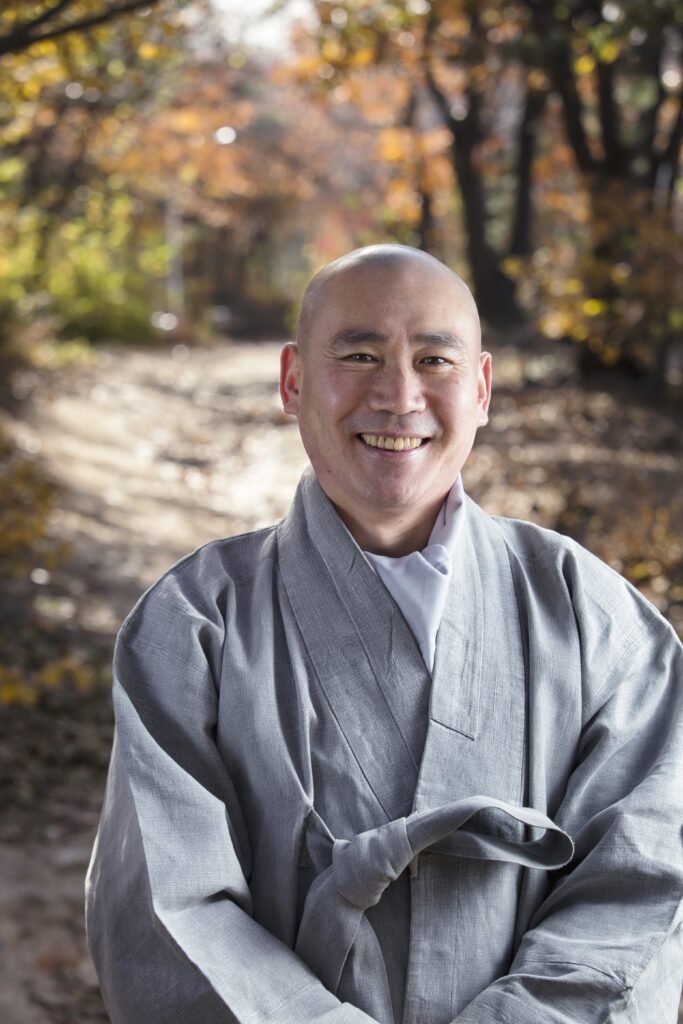
Keynote 6
Ven. Magga Sunim
Jogye Buddhist monastic and South Korean public figure advocating for youth mental health. Author, abbott, and president of Compassion Meditation Society.
Ven. Magga Sunim is a well-renowned monk in the Korean Jogye Order and a public figure in advocating for youth mental health. In 1985, he received the Buddhist monk’s precepts from Ven. Hyunsung Sunim at Dosunsa, S.Korea. After graduating from Jungang Buddhist Sangha University, he practiced at domestic and overseas monasteries, including the Bokcheonam Monastery in Korea, Plum Village in France, and the Mahasi Meditation Center in Myanmar. He has been at the forefront of promoting ‘compassion meditation’ for healing, forgiveness, joy, and happiness, emphasizing warm Buddhism, and opened a ‘compassion meditation temple stay program’ in Magoksa temple in 2002. From 2003 to 2011, he taught at Chung-Ang University, where he was known as a “professor whose classes fill up in one second.” He was an invited professor at Chung-Ang University, a Buddhist Denominational Chaplain at Dongguk University, and the host of the BBS Buddhist broadcast ‘It’s Okay! with Ven. Magga Sunim” where he provides a healing atmosphere with guests laughing, sharing sorrow, and cheering them on.
Magga Sunim was most recently featured a debut documentary film focusing on his care for his dying mother at the end of her life. Magga Sunim, his siblings, and his mother were abandoned at an early age in his life. After Magga Sunim left home to become a monk, he lost contact with his mother. Decades later, Magga Sunim came to understand his mother’s life and visited various temples in Korea for three years with her, creating precious final memories despite her limited mobility and terminal illness. He was awarded the Korea Social Contribution Award in 2020.
Currently, he is the president of the Compassion Meditation Society and the abbot of the Gul-amsa Monastery. He is the author of several books, including Thankful Compassion Meditation, Looking at My Heart, It’s Okay to Know, and Finding the Buddha Inside Myself.
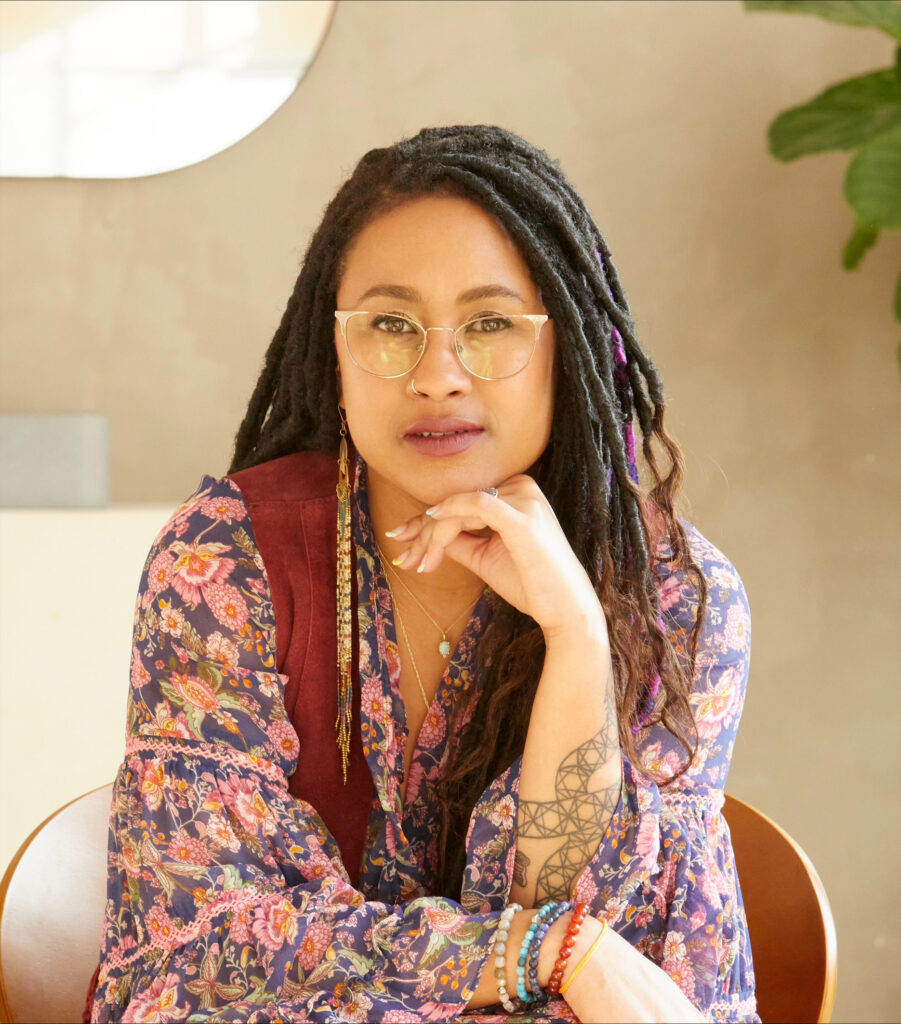
Keynote 7
Dr. Sará Yafah King, PhD
Dr. Sará Yafah King is an internationally recognized neuroscientist, artist, political and learning scientist, education philosopher, social impact entrepreneur, public speaker, and certified yoga and mindfulness meditation instructor. She is passionate about catalyzing humanity’s capacity to heal ourselves from the inside out and dedicated to creating contemplative practices at the nexus of art, music, and meditation. She is currently a Post-Doctoral Fellow in Public Health at the T. Denny Sanford Institute for Empathy and Compassion in Human Health and Social Justice at UCSD. She is also the co-director of Mobius, a home for the development of Liberatory Technology, and the founder of MindHeart AI, a contemplative tech company that she founded to develop AI-integrated platforms, applications, and courses grounded in neuroscience. She is also the inventor of “The Science of Social Justice” framework and the “Systems Based Awareness Map” (SBAM) – the world’s first theoretical map of human awareness – which she developed to explore our capacity to heal intergenerational trauma and promote the well-being of “collective nervous systems”. In 2021, she was named “One-To-Watch” by Mindful Magazine, as well as she made the November cover of Yoga Journal Magazine as a “Game Changer” for her work bridging neuroscience, social justice and contemplative practices. In 2022, she was also named one of the “10 Most Powerful Women in Mindfulness” by Mindful Magazine.
BURNING REFUGE: The 2024 Buddhism and Social-Spiritual Liberation Conference, at Harvard Divinity School
Date & Location
March 7 – 9, 2024
VIRTUAL on Zoom
IN-PERSON at Harvard Divinity School 45 Francis Ave, Cambridge, MA 02138
